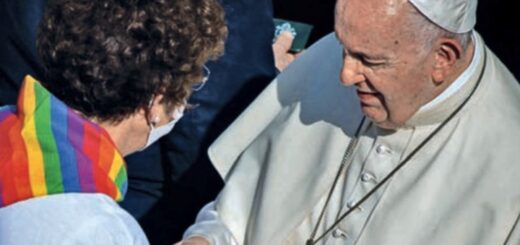The homosexuality whispered by Oscar Wilde in his "Dorian Gray"
Passage from an article by Alex Ros* published in the weekly The New Yorker (United States) of 8 August 2011, freely translated by Innocenzo Pontillo, part before
Oscar Wilde was not a man who had particular fears, but the first reviews of "Dorian Gray's portrait (The picture of Dorian Gray) must have made him reflect. His writing tells of a man who never ages, while his portrait becomes decrepit to his place. Had been published in 1890, the number of July of Lippincott's, a magazine in Philadelphia (United States) but with an English distribution.
The Daily Chronicle In London he called him an "impure", "poisonous" and "full of the mefitic smells of moral and spiritual putrefaction". St. James Gazette considered it "bad" and "nauseating" and suggested that the treasure or the supervisory company could pursue the author.
The most disturbing thing was a short article on Scots Observer which stated that although "Dorian Gray" was a work of literary quality, it dealt with "issues suitable only for the criminal investigative department or a hearing behind closed doors" and would have been of interest mainly for "noble outlaws and perverts Ragazzi del Telegrafo ” - alluding to the recent Cleveland Street scandal, which had highlighted the activity of a male brothel in London.
Within five years, Wilde will find himself sentenced precisely for "having committed deeds of serious obscenity with some male people".
Wilde had hesitated to transcribe the manuscript of "The portrait of Dorian Gray " precisely because of its homoerotic content.
The fury of the press therefore must not surprise: no work of traditional narrative in English had come so close to describing homosexual desire. The initial pages leave little doubts about the fact that Basil Hallward, the painter author of the portrait of Dorian, is in love with him.
Once Dorian discovers his divine powers, he performs various atrocious acts, including murder; But for the Victorian sensitivity his most unspeakable action would have been the corruption of a series of young people. (Basil says to Dorian: “There was that unfortunate boy in the guards who committed suicide. You were his great friend. There was Sir Henry Ashton, who had to leave England, hiding his name. You and he was inseparable . ")
To the processes suffered by Wilde in 1895, the opposing lawyers read aloud songs taken from "Dorian Gray", calling him a "sodomitic book". Wilde went to prison not because she loved young people, but because she flaunted that love and her "Dorian Gray" became the main manifestation of her shamelessness.
Wilde died in 1900, in a dilapidated Paris hotel, at the age of forty -six. From one day to the next a legend was born: Wilde the homosexual martyr, Wilde the rebel against morality.
A nascent movement for gay rights embraced him as the hero of a great challenge. When, in 1967, Craig Rodwell opened a gay and lesbian library in New York, called it Oscar Wilde Memorial Bookshop, and after the 1969 Stonewall unrest Rodwell used the book List of the library to help organize the first parade of Gay Pride . Until the end of the eighties, young book enthusiasts could still be found that dealt with their (homo) sexuality reading Wilde.
Whether Wilde considered himself or not part of a cause, he certainly didn't miss the courage.
The multiple versions of "Dorian Gray", with the first surviving manuscript, which is located at the Morgan Library; at the dactyloscript sent to the publisher of the Lippincott's, that Harvard University Press has just made available in a "unwavering" edition; to the text published by Lippincott up to the expanded version of the book in 1891; They show that Wilde decided, phrase by sentence, to what extent he wanted to go.
The library entitled to Wilde closed in 2009, a victim not only of the decline in the sale of books, but also of the partial triumph of the Mission of Rodwell, its founder. Today, in fact, in many large cities, gays and lesbians no longer seem to need safe places to find themselves. And they no longer seem to need the non -said of Oscar Wilde; Today's young gays can have fun with the wit and wisdom of Neil Patrick Harris.
All this leaves Oscar Wilde in an interesting limbo. What can you tell us in a time, perhaps not too far, in which homosexuality will have ceased to be a source of conversation?
* Alex Ross has been the New Yorker music critic since 1996. His first book, the international bestseller The Rest Is Noise: Listening to the Twentieth Century, was a finalist at the Pulitzer Prize and won an National Book Critics Circle Award. His second book, the collection of essays listen to this, received an Ascap Deems Taylor Award.
Original text: How Oscar Wilde Painted Over Dorian Gray






